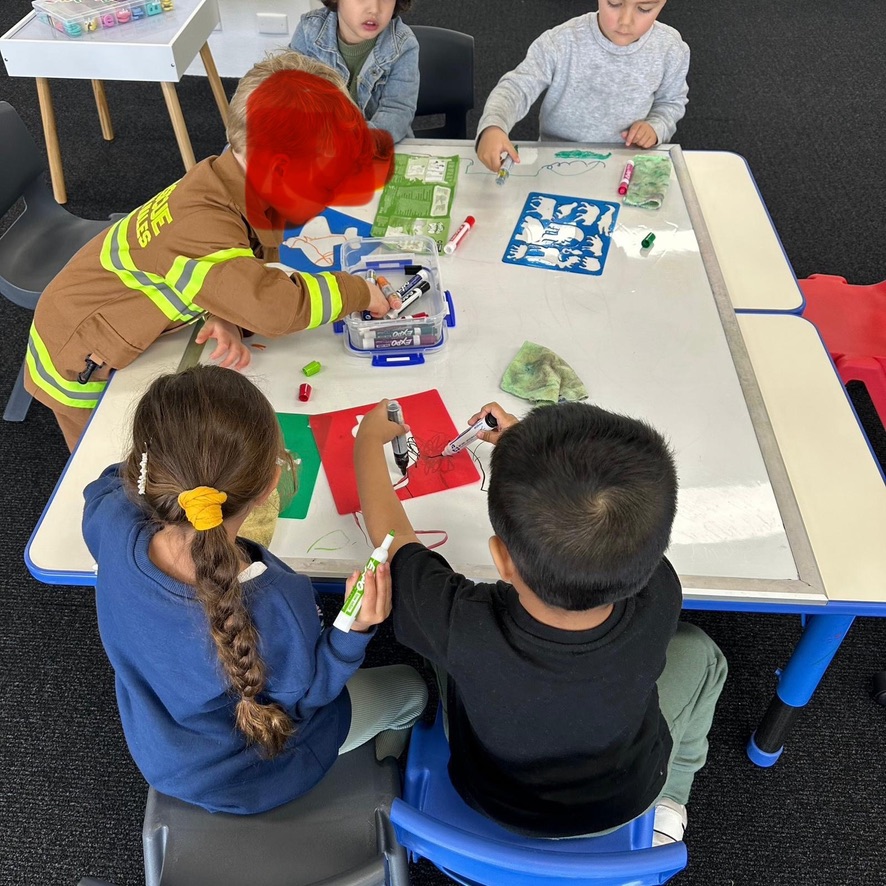
The Benefits of Group Intervention for Children with Autism in Sydney: Boosting Social Skills with ESDM Groups
Group intervention is a fantastic way to support children with autism. It offers benefits that go beyond one-on-one therapy. One of the biggest advantages is helping kids develop social skills with their peers. Let’s explore how group intervention can help and how Early Start Denver Model (ESDM) groups make a difference.
Why Group Intervention Works
Enhancing Social Skills
Natural Social Interactions: In a group, children can interact with their peers naturally. This helps them practice skills like taking turns, sharing, and starting conversations.
Modeling and Imitation: Kids can watch and copy the social behaviors of their peers, which is key for learning.
Real-Life Practice: Group settings offer real-life scenarios for practicing social skills, making it easier for children to use these skills in other places like preschool or home.
Building Friendships and Peer Relationships
Creating Bonds: Regular group sessions help children form friendships and feel like they belong. This is great for their emotional well-being and self-esteem.
Peer Support: Kids can support each other, creating a sense of community and reducing feelings of being alone.
Encouraging Communication
Interactive Communication: Group activities encourage children to use language and communication meaningfully. They learn to express their needs, share ideas, and have conversations.
Pragmatic Language Skills: Kids develop skills to understand social cues, body language, and how to use language appropriately in different situations.
Promoting Emotional Regulation
Group Dynamics: Being in a group helps children learn to manage their emotions and behaviours when interacting with others.
Supportive Environment: The group setting is supportive, helping kids feel understood and accepted, which helps them regulate their emotions better.
How ESDM Groups Help
The Early Start Denver Model (ESDM) is a proven method for early intervention for young children with autism. ESDM groups blend principles of applied behaviour analysis (ABA) with developmental and relationship-based approaches, making them very effective in group settings.
Benefits of ESDM Groups
Individual Goals in a Group Setting: ESDM groups allow for individual learning goals tailored to each child’s needs while enjoying group interaction. This ensures each child’s unique strengths and challenges are addressed in a social setting.
Structured and Play-Based Activities: ESDM groups use structured, play-based activities to engage children, making learning fun and motivating. These activities promote social interaction, communication, and play skills.
Skilled Facilitators: Certified ESDM therapists lead the ESDM groups. They apply ESDM principles in group settings, guide interactions, model behaviours, and support each child.
Parent Involvement: ESDM groups often include parents in the intervention process. They provide strategies and tools for parents to use at home, enhancing the intervention’s effectiveness and ensuring consistency.
Group Intervention at Our Sydney Clinics
At OneOnOne Children’s Therapy, we offer group intervention services, including ESDM groups, at our Sydney clinics located in Bondi Junction and Mascot. Our experienced speech pathologists and occupational therapists are dedicated to providing personalised support to help children with autism thrive in a group setting.
Why Choose Our Bondi Junction and Mascot Clinics?
- Convenient Locations: Our clinics in Bondi Junction and Mascot are easily accessible, providing a welcoming and supportive environment for children and families.
- Expert Staff: Our team of skilled therapists specialises in early intervention and group therapy, ensuring each child receives the best possible care.
- Comprehensive Support: We offer a range of services to meet the diverse needs of children with autism, from individual therapy to group interventions.
Conclusion
Group intervention offers many benefits for children with autism, especially in developing social skills. Group settings help children practice and improve their social interactions, build friendships, and enhance communication and emotional regulation. ESDM groups, with their individualised, play-based, and structured approach, are especially effective in fostering these skills in a supportive environment.
At OneOnOne Children’s Therapy, we aim to provide valuable insights and resources to help parents support their children with autism. If you want to learn more about ESDM groups or group intervention options for your child, reach out to us. We have clinics in Bondi Junction and Mascot.
Have you seen the benefits of group intervention for your child? Share your experiences in the comments below!
